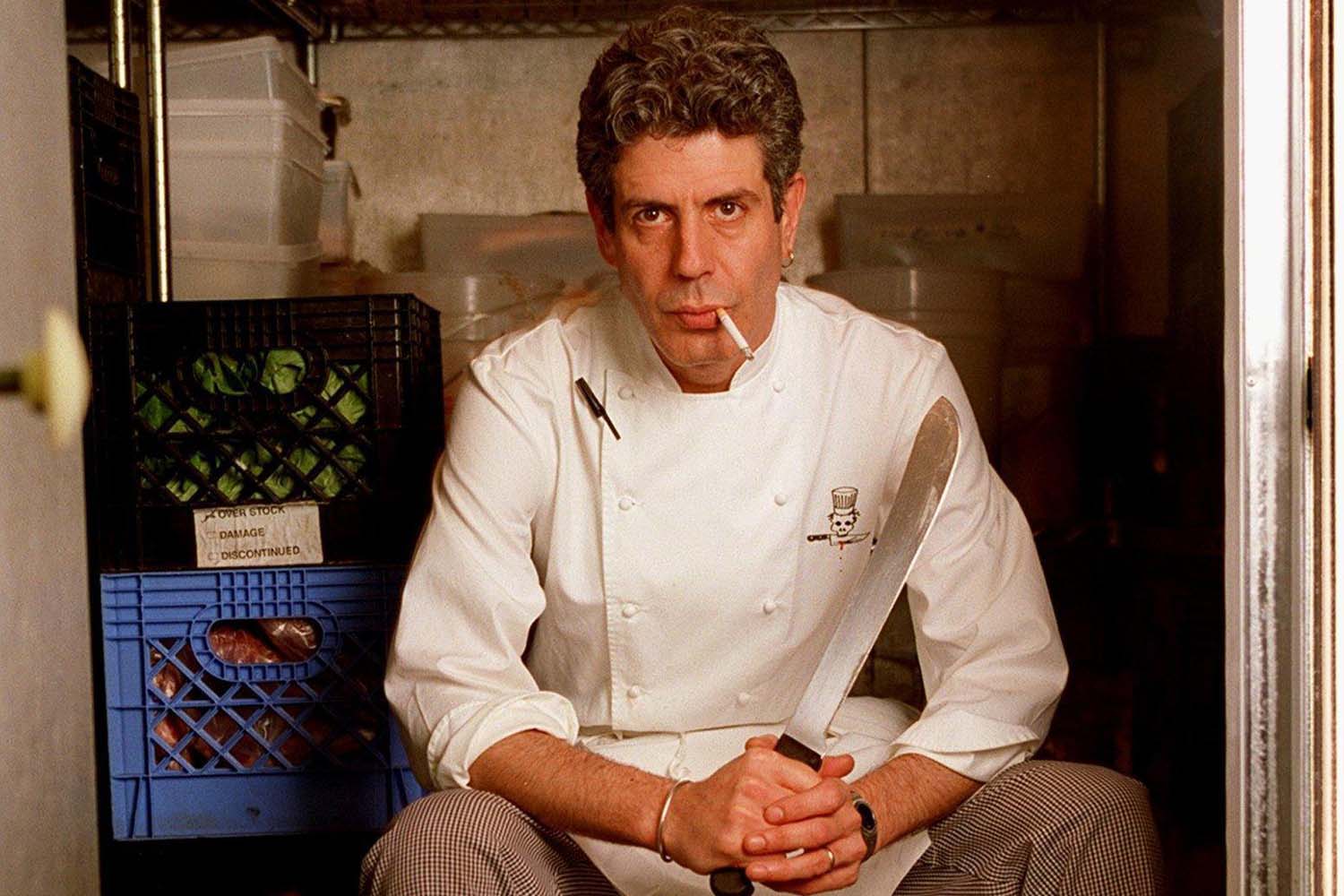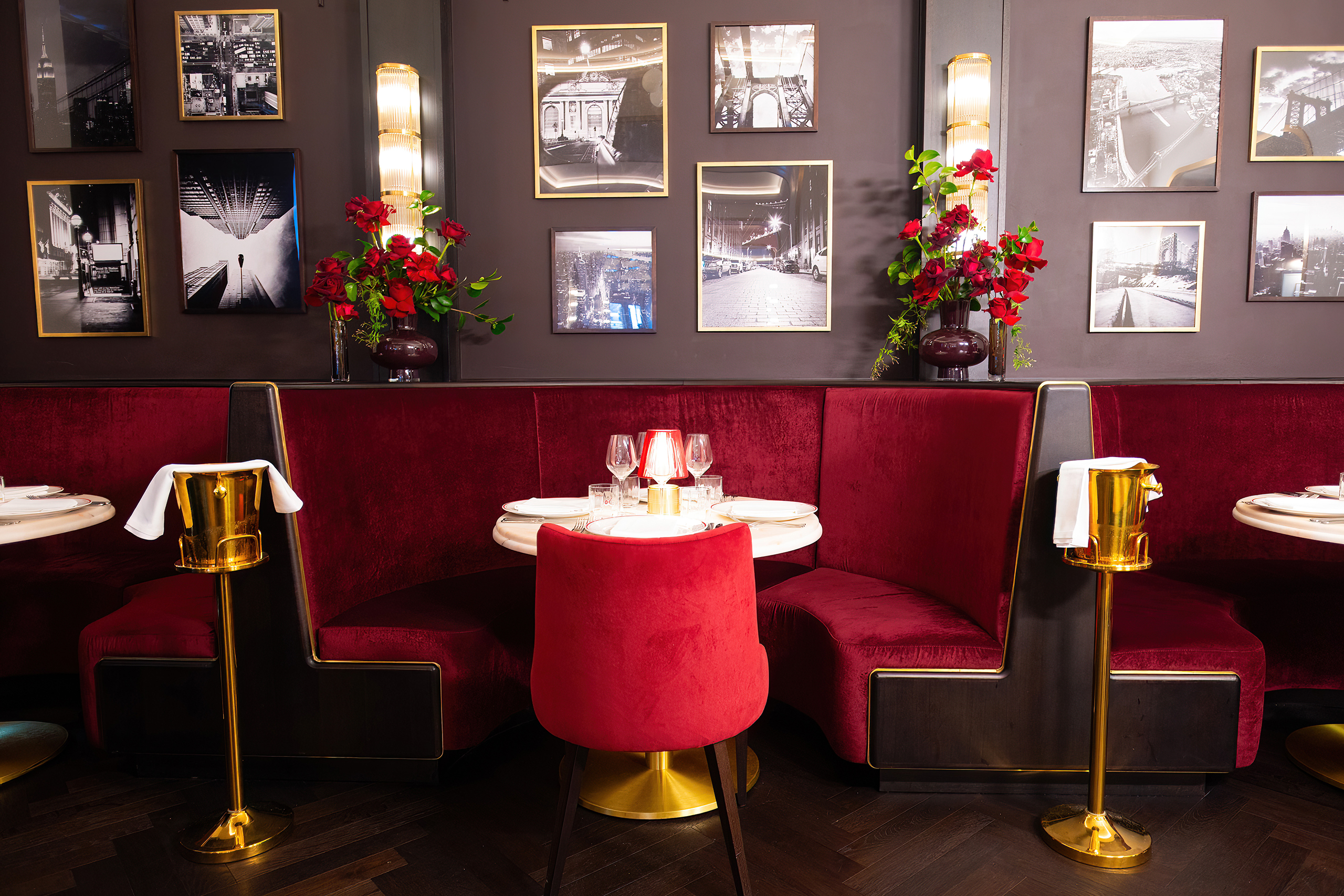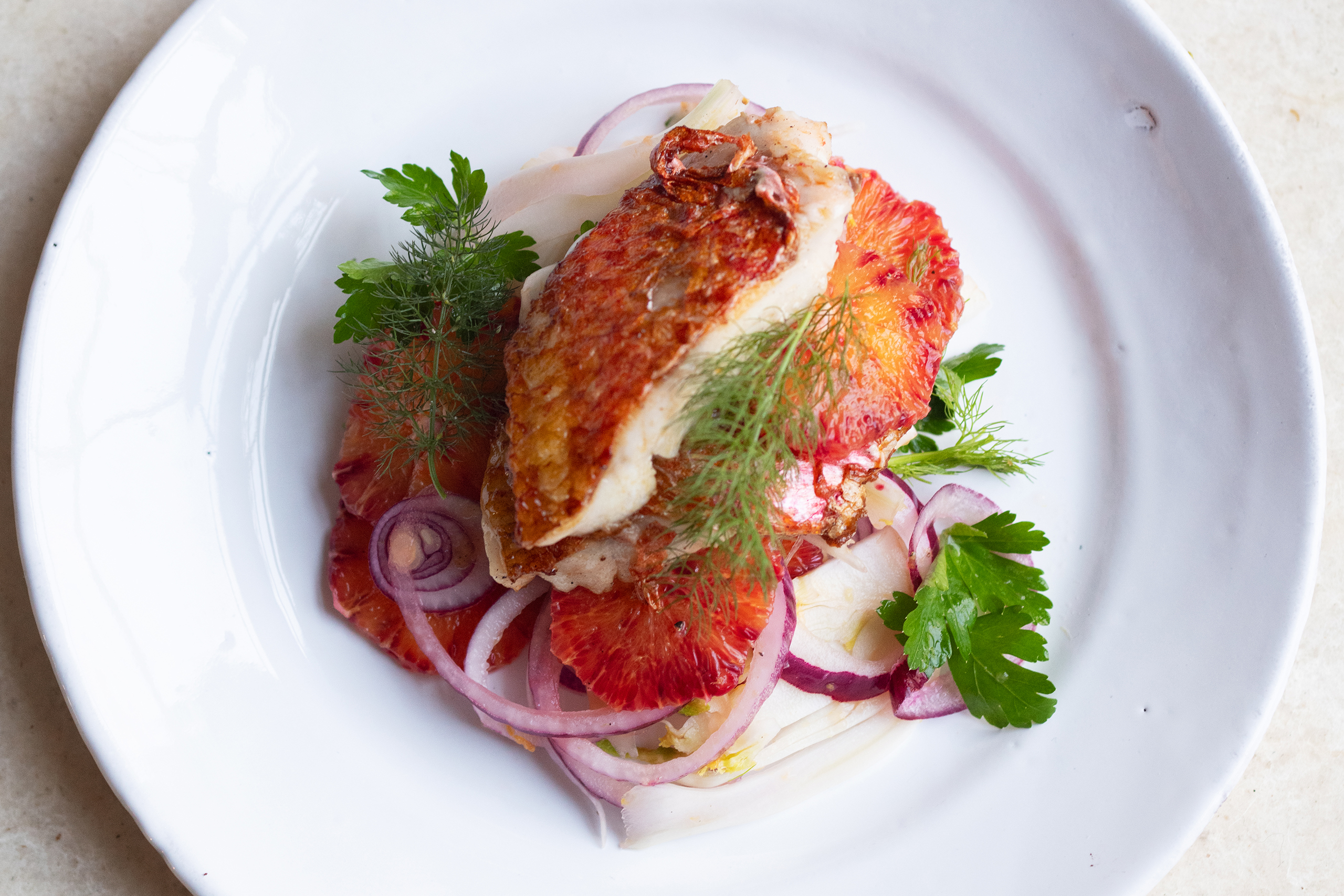I never knew Anthony Bourdain. I never met him. But he and Kitchen Confidential were very important to me. This is why. As a young man, I went to London from my native Edinburgh, drawn not so much by bright lights as punk rock. I lived for gigs, clubs and festivals. As a result, I was always pretty much unemployable, but could feign interest in a job, figuring out the angles to enable me to do as little substantive graft as possible. I was a solidly working class, council estate kid, but blessed with a massive sense of entitlement, believing that the world owed me a living. All I wanted to do was music and writing. Not a lot has changed.
To finance the purchase of the guitars, amps and recording equipment required to mess around pretending you were in bands, I generally worked on building sites, occasionally landing a cushy office gig. But I often wound up in the kitchens of various London hotels, the cross-channel ferries, and mass-catering events like the Horse of the Year Show at Wembley, or Silverstone, or assorted racetracks. Anywhere that would hire my ragged punk rock arse. In such spots I generally operated as a kitchen porter, and once, with deep unsuitability, as a short-order cook.
Building-site work was tough. Labouring for a brickie is one of the most difficult things you can do if, like me, you are basically averse to physical work. Hotel and restaurant kitchens, though, possess their own unique drawbacks: every time you walk into one, you are blown away by baking, unrelenting heat. This is compounded by the untrammelled hedonist’s bitter resentment of working in such stifling conditions during unsocial hours, while others play. Then there’s the tyranny of the line-management setup if – when – you, at the bottom of the pile, fucked up, and had to answer to the chef.
The chef wasn’t like the rest of us transients, looking for a better life, who saw this as a stepping stone; one day we would go to college, train in something else, form a band, have a hit record, meet a rich lover, win the football pools (no lottery back then), and fashion some kind of escape from this hell. But not the chef. The chef was going nowhere, except maybe to another kitchen identical to this one, usually after insulting or assaulting the owner or some obnoxious unappreciative customer in a variety of creative ways, occasionally involving sharp kitchen implements or hot food. The chef was a volatile alcoholic. The chef had the power. My strategy for survival in such environments was: befriend the chef, unless they were so hated by your co-workers that they, instead of him, would make your life a misery. In which case you had to find ways of avoiding him – it was always a “him” then.

‘I never felt more rock’n’roll than when I swaggered out of a hot kitchen into a club’: Irvine Welsh in 1995
Bourdain’s book Kitchen Confidential fabulously shone a light on what he accurately refers to as that pirate culture. The late-night bars after your shift, where you’re all drawn to each other, those fellow fugitives, and the heavy drinking and reckless drug-taking, the hasty affairs and bitter fall-outs that go along with them. When you end up drunkenly snogging someone who you half-realise is seeing someone else. And then you need to work alongside that someone else later; hungover, paranoid, and in an airless, white-hot kitchen, a place of well-honed knives, hot surfaces and burning fat. Then the inevitable explosion, where you walked out, announcing that you were done with kitchen work, only to be found banging on the door of an identical place a few weeks later.
I never felt more rock’n’roll than when I swaggered out of a hot kitchen into a club or pub lock-in with a group of like-minds. Not when I was in shit bands, or dealing drugs or hustling for them – or even when feted as an internationally published, best-selling author. This was partly the product of youth, but it was also about being surrounded by other outlaws. Many of whom had dark pasts and stories to tell.
A kitchen operates on militaristic line-management structures and can only function effectively when everyone knows their place and adheres to those roles. It is decidedly not a democracy. When you have a situation where anarchists by temperament are compelled to operate in a controlled environment, no matter how bonded the team are, something, at some point, has to give. When it does, the only head guy you respect is the one who is genuinely passionate about what he’s doing. Who takes time to explain and to show. Who doesn’t see you as just another replaceable cog in the machine.
Bourdain was cut from that cloth, becoming a huge success by respecting the dynamic of getting the job done, but without ever losing his appreciation for all the round pegs pushed into those square hospitality industry holes. His passion for food and the good things in life was inspiring. If living well truly is the best revenge, then his tragic death (in 2018, aged 61) felt like retribution by the icy-hearted, soul-dead, money-bags on the very spirit of rock’n’roll.
The British came late to a mass appreciation of the great importance of food in our cultural lives. If you grew up in the 1960s and 1970s, there was nothing that couldn’t be rendered inedible in a British kitchen. Especially in Scotland, where we defined ourselves by the existential declaration: if you can’t drink it, fuck it or deep-fry it, it probably doesn’t exist. I remember as a kid, my mum and dad taking me to a Wimpy. In 1969, bar a couple of Chineses and a steakhouse serving cuts of meat like burnt toast, it was practically the only restaurant in the city. I thought we’d joined the ranks of the haute bourgeoisie.
The Olivers and the Ramsays, the UK media’s favoured kitchen good and bad cops, moved the British perception of cheffing from a low status joke into something quite cool. But the good and bad cops were still, ultimately, cops. It was Anthony Bourdain who made not just chefs and cooking, but kitchens and all their denizens, interesting territory for the clued-up. Bourdain was the villain’s chef, the outlaw’s chef, the rebel’s chef.
Newsletters
Choose the newsletters you want to receive
View more
For information about how The Observer protects your data, read our Privacy Policy
Bourdain made not just chefs and cooking, but kitchens and all their denizens, interesting for the clued-up
Bourdain made not just chefs and cooking, but kitchens and all their denizens, interesting for the clued-up
He was perhaps always an innate literary stylist. His journalist mother was a copy editor at the New York Times and young Anthony grew up in a house stuffed with books. Even when seemingly entrenched as both food-obsessed executive chef (and great front-of-house raconteur) at the unpretentious steak-frites spot Les Halles, on Manhattan’s Park Avenue, Bourdain had, in true punk renaissance man style, explored other directions. His culinary crime potboiler Bone in the Throat was published, though there was no chance he’d be turning his back on his calling. Having lived the full hard-drinking, drugging life, through working in various eateries, Les Halles was his harbour, seeming to offer a semblance of stability.
Then, in 2000, Kitchen Confidential was published and his writing suddenly took over from his cooking. The book was confessional and disruptive, delivering the publishers’ wet dream of combining cult and bestseller status. If the humour was irreverent, the respect for his vocation never wavered. Bourdain’s own world opened up. A handsome, witty raconteur, he was made for broadcasting, oven-ready for screen time.
The inevitable reaction to this success manifested in Bourdain’s bourgeois critics attacking his Kitchen Confidential persona, often carping that transparent vulgarity and bad-boy posturing undermined the intelligence of his contentions. But this is a misunderstanding of his radical spirit.
Kitchen Confidential often wears its literary inheritance on its sleeve. The pulse of Orwell’s Down and Out in Paris and London is apparent, a socialist critique of the dire, brutal conditions faced by restaurant workers. But capitalism exploits all, even billionaires, by sucking soul rather than finance from them, relegating their minds to low-frequency, childish distraction, which involves revelling in, or blithe indifference to, the suffering of others. As Bourdain writes in Kitchen Confidential: “We’re not drones or slaves; we’re pirates! We’re not being oppressed; it’s the squares in the dining room who are the losers! It’s this incredible seizure of power.”
In this, Bourdain instinctively understood something many bourgeois Marxist critics fail to grasp. Harping on to working-class people about how exploited they are, and how wretched their lot is, only denies them humanity and pushes them into the arms of the oppressors, who offer nothing but the phoney agency of racism and nationalism. Like Orwell, Bourdain clearly saw the spirit of working people, as well as their oppression.
Both in Kitchen Confidential and on television, he exposed the intrinsic hypocrisy represented by immigrant labour in fine dining, of habitually marginalised and discriminated-against sections of the community delivering Michelin-star dining experiences, often so complacently enjoyed by more moneyed customers. Bourdain never wavered in his disdain of those elites, a battle fuelled by his reaction to the sterility of his own comfortable, suburban background. The increasing privilege offered by his success only intensified this.
His departure was a signal that those soulless gobshites were in the ascendancy. People like myself, who never knew him, instantly had that aw fuck, no, moment: the sense that we had lost not only a kindred spirit, but an important one.
Kitchen Confidential: 25th Anniversary Edition, with an introduction by Irvine Welsh, is published on 19 June by Bloomsbury (£12.99). Order a copy at observershop.co.uk. Delivery charges may apply.
Photographs by Newsday/Getty, Martyn Goodacre/Getty


